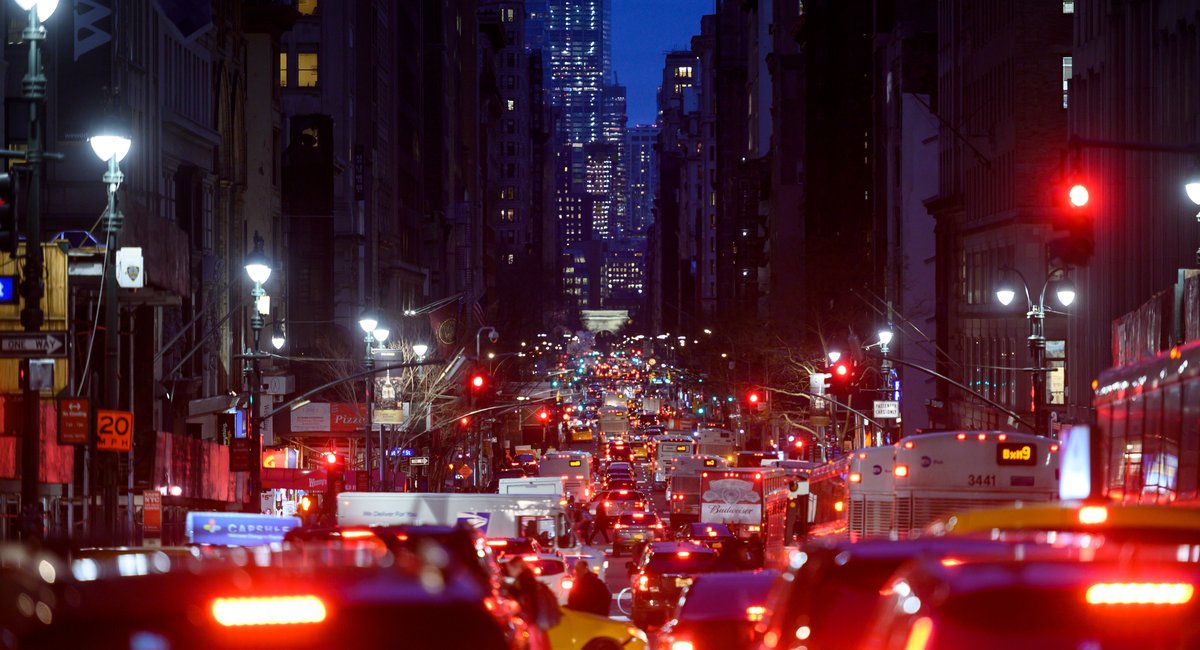The MTA board on Wednesday gave its final approval of congestion pricing, paving the way for the agency to charge drivers a $15 daytime toll to enter Manhattan south of 60th Street.
The 11-1 vote finalizes a yearslong saga to launch the tolls. The state Legislature first approved the initiative in March 2019, which was followed by a lengthy federal and environmental review process. The MTA board signed off on the prices of the tolls in December, triggering a 60-day review period.
Wednesday’s final vote realizes a longtime dream of transit advocates, who for more than 50 years have proposed charging drivers to enter Manhattan’s busiest areas. The program’s fate still hinges on lawsuits working their way through federal courts.
The final tolling structure is largely unchanged from the one approved in December, though the MTA did exempt some school buses and municipal vehicles from the charge.
Traffic analyst Sam Schwartz, who’s pushed for congestion pricing in various forms since the 1970s, lauded the board’s approval — but warned it’s not a done deal.
“I welcome the MTA’s affirmative vote on congestion pricing,” Schwartz wrote in an email. “However, I’m keeping my champagne on ice until the lawsuits are resolved (which stopped a version in 1980) and no acts of Congress passed to block it (which stopped tolls on East and Harlem river bridges in 1977) and the first car is charged.”
Wednesday’s vote did not come without controversy and protest. The MTA limited the number of people who could attend the board meeting, and the agency’s police force stood guard behind security barriers set up in front of its Lower Manhattan headquarters.
Taxi drivers objected to the tolls during the meeting. While yellow and green cab drivers won’t have to pay the $15 toll, the board approved a $1.25 surcharge on taxi trips that enter the congestion zone.
“This is the day that the MTA has officially said to the yellow cab industry that you do not have a right to exist on the streets of New York City,” said Bhairavi Desai, executive director of the Taxi Workers Alliance.
But there is still major support for congestion pricing, which aims to reduce gridlock in Manhattan by as much as 20% and fund $15 billion worth of MTA construction projects.
Streetsblog reported that the program’s supporters outnumbered its opponents by a 2-to-1 margin in the MTA’s latest public comment period on the tolls.
The MTA already installed tolling infrastructure throughout Manhattan, and hopes to turn on the technology in June.
The program’s stakes are high. It would be the first congestion pricing program of its kind in the nation, and could be a model for other gridlocked U.S. cities if it succeeds in reducing Manhattan’s traffic and raising revenue for the MTA to improve public transit.
“We are the first in the nation but not the last,” MTA board member Neal Zuckerman said ahead of the vote. “The interesting story will be what cities are going to come next.”
Congestion pricing programs have been in place in major cities around the world for decades.
